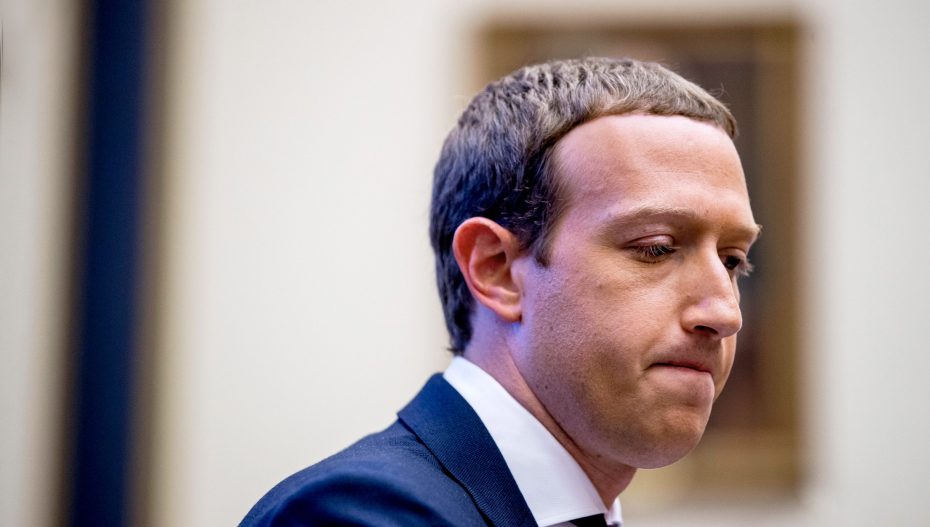With a single earnings report and a disastous conference call, Mark Zuckerberg wiped out $240 billion in value from his company. Meta’s was the largest one-day loss by a U.S. company ever, and the ripple effects devastated Silicon Valley. Tech losers reeling from the Meta Platforms (formerly Facebook) reckoning included Spotify (16 per cent lower) and Twitter (6 per cent). Even companies that were relatively safe, such as Apple and Microsoft, saw hundreds of billions of dollars erased from their market value.
Why did this happen? Has the bell tolled for Big Tech?
To answer that last question first, yes and no. Many of Facebook’s problems are of Zuckerberg’s own making. It wasn’t even six months ago that the billionaire tech developer decided not only to change the company’s name but to go even further — to hijack its reason for existing and create a whole new digital reality, the metaverse, amid one of the most damaging, long-lasting scandals of the company’s existence. It took over $9 billion to build this metaverse in 2021— an astronomical sum, especially since Zuckerberg has tried to warn investors that it could be as late as 2031 before he really gets it right. It’s the kind of leap of faith that, ironically, tends to get a more sympathetic hearing from smaller, scrappier companies, such as Magic Leap, that have far less money and resources at their disposal — except that the money comes from venture capitalists who can handle companies going bust, not the public stock markets that fuel people’s retirements.
But there are other, structural reasons for Meta’s rout, and the weight of those changes has suddenly registered with the rest of the world. The first is Tim Cook, the head of Apple, the largest company in the world. Last year, Apple allowed its users to opt out of getting followed around the internet by advertisers, kneecapping Facebook’s whole business model. Facebook is one of the avatars of surveillance capitalism. During the last three months of 2021, when inflation picked up and advertisers started to pull back on spending, Apple’s move hit Facebook hard and signalled to the rest of the world that online advertising will be going through a hard time.
Ron Berman, a professor of marketing at Wharton Business School said the online-advertising business is essentially split into two camps: those like Google and Amazon, whose sites you visit to tell them what you want, and places like Facebook and Instagram, where people visit to be entertained and the companies use the data they have on you to inform advertisers. For “the advertisers selling on Amazon, everything is inside the platform,” Berman said. “If Facebook was able to have a lot of people sell through Facebook on the Facebook app, a lot of this problem would be a non-issue.” So when Cook allowed Apple users to block ad tracking, he was essentially siding with the Googles of the world, at least as far as advertising is concerned.
Amid all this turmoil, there’s still the competition. Those massive, damning leaks by whistleblower Frances Haugen detailed how Instagram was harming the mental health of girls just as Zuckerberg’s company was pushing to roll out a version of its photo app for children. Kids didn’t really use Facebook and were leaving Instagram for Snapchat and TikTok. Facebook needed an in with the next generation, and this was it. The strategy continues.
Since Facebook’s demographics are skewing older and people are venturing out more as the Omicron wave starts to subside, Berman thinks it might be harder to lure people back — which will make it even harder to get advertisers to spend more money there.
The problem for Zuckerberg is his style as a CEO is not about coming up with brilliant or creative new things. It’s about doing those things better than his competitors, at least from a business perspective. He bought Instagram for $1 billion in 2012; two years later, he purchased WhatsApp for $16 billion. Along the way, his properties have copied TikTok (“Reels”) and Clubhouse (“Live Audio Rooms”) and set up a version of Craigslist (“Facebook Marketplace”). The success has varied, but clearly the playbook is no longer working. Even if Facebook could buy its way out — and with $39 billion in revenue last year, Lord knows that wouldn’t be an issue — it’s facing an impasse in Washington, D.C., where one of the few bipartisan positions is regulating Big Tech. The companies’ lobbyists are getting no traction, and the Federal Trade Commission has been giving them no quarter — in fact, it’s a very real possibility that Meta could be forcibly broken up.
Does this all mean it’s the end of days for Facebook? Probably not. Even if Zuckerberg fails spectacularly in getting people to go along with his metaverse and never recovers the revenue levels from online advertising, he has already ingrained his company deeply into the internet. After all, there are still people who use AOL, right?












